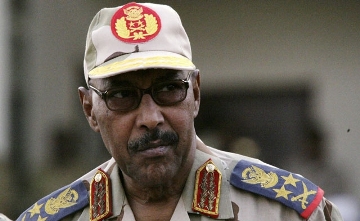Sudan army launches second phase of military campaign against rebels
December 11, 2014 (KHARTOUM) — The Sudanese army stepped up its rhetoric against the rebels and vowed to crush them in the military campaign known as “decisive summer” operations.

He further said during a graduation ceremony in North Darfur state, that the army will make a practical response to those whom he described as mercenaries and disillusioned who want to dissolve the army, police and security.
The Sudanese army has been fighting rebels in Blue Nile & South Kordofan since 2011 and Darfur rebels since 2003.
This month, military clashes escalated between the army and Sudan People Liberation Movement North (SPLM-N) in South Kordofan following the collapse of the 9th round of peace talks between the two sides in Addis Ababa.
On Thursday the SPLM-N claimed in a brief SMS message to Sudan Tribune that it captured al-Daldako and Ruseiris areas in South Kordofan state. The announcement noted that the two areas are 10 and 12 kilometers away from state capital of Kadugli respectively.
There was no comment from the Sudanese army.
In New York, the United Nations Security Council (UNSC) reiterated their grave concern about the dire humanitarian situation resulting from fighting in South Kordofan and Blue Nile States in Sudan.
The UNSC called on all parties to refrain from any acts of violence against civilians and to expedite safe and unhindered humanitarian access for the timely and full delivery of humanitarian aid to all civilians in urgent need of assistance.
They also expressed regret at lack of agreement in last peace talks between Khartoum and SPLM-N and renewed their calls for the two sides to engage in the next round of direct talks without conditions in January and make the necessary concessions to reach agreement.
The African Union mediation proposed to reach a framework agreement to end the conflict and to include the SPLM-N rebels in the national dialogue.
The talks stalled over SPLM-N concerns for the comprehensive political solution, while Khartoum government focused on the modalities of the security arrangements.
The originality of this process that similar talks were organised between the government and Darfur rebel groups aiming to bring them together to the internal political process.
(ST)
